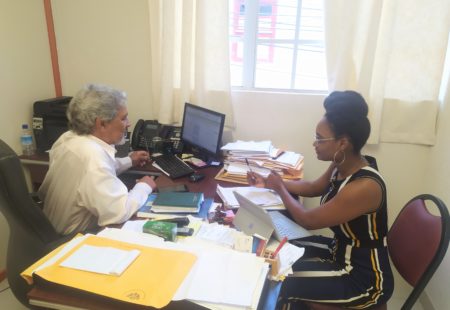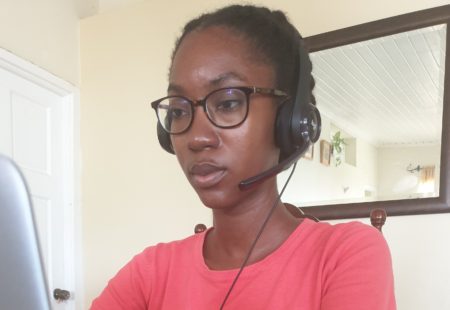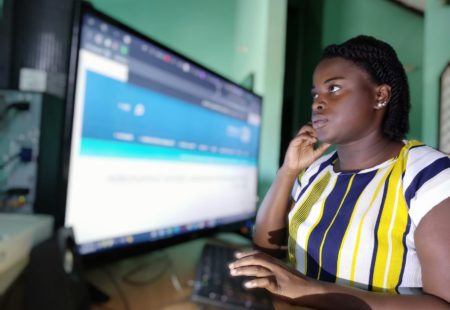How to Make the Most of Your Internship – Do’s and Don’ts

By Dee-Ann Wood
My ongoing experience as Communications Intern at the Caribbean Centre for Renewable Energy and Energy Efficiency (CCREEE) just keeps getting better. Here are some tips I picked up and I am practicing to help me make the most of my time at the CCREEE; you can employ these in your internship too:
Do have clear goals for your internship. When I started, I was bright eyed and bushy tailed, eagerly going with the flow, happy to be included. I wanted to learn and gain as much exposure as I possibly could. While enthusiasm is welcomed, bear in mind that not all activities will align with your goals. Be a team player and assist where necessary, but keep your main goals in mind to ensure that you get experience and exposure where you want to. Use the SMART system to clearly define your goals and track them throughout your internship period.
Don’t lose your work/life balance. During the first few weeks of my internship, I toggled between two extremes: getting caught up and extending my work day well into the night, or, thinking ‘I can log in any time and work so there’s no need to be very productive now’. Neither approach is effective. The former will lead to burn out and the later lends itself to time wasting. Develop techniques to help manage your time and create an environment that allows you to focus. The goal should be to meet timelines without encroachments on your personal time. Going the extra mile is appreciated, but for your sake be reasonable.
Do give and ask for feedback. This is essential for effective collaboration – an underrated soft skill. Particularly in the online environment where most communication is either written or in a meeting, ergo formal, I found I was hesitant to engage and interact. However, collaborating, sharing your thoughts and welcoming that of others not only helps integrate you into the team, it improves your own abilities. Engaging meaningfully in discussions strengthens your critical thinking skills and builds your confidence while receiving feedback builds resilience. Being able and willing to add concretely to discussions is something I continue to work on.
Don’t be a ‘yes person’. This is something I observed throughout the CCREEE team. Through the various activities of the CCREEE every team member has a full roster of work. Yet there is always another project presenting itself. Never have I seen any member jump in and say yes to additional tasks without identifying what is required of them and whether they have the capacity to meet those requirements in the given timeline. If it’s not something they can take on, they politely decline or suggest how they might be able to provide support. Having a can-do spirit is one thing, but being a yes person only swamps you with a burdensome workload. Being realistic with tasks and timelines makes it easier to be responsible and reliable.
Do be honest with your supervisor. My supervisor would ask questions such as “How do you feel about your tasks? Are you working in the areas you want to? Are there additional areas you would like to explore or is there something you would rather not do?” I found these useful for assessing my experience as a whole. Sharing my views with my supervisor allowed for an enhanced experience and guidance where necessary. It also opened the way for discussions surrounding professional development, productivity hacks and people management. Being honest allows for the feedback and advice provided by your supervisor to be tailored to your needs and be beneficial to you, rather than generic information.
Don’t be afraid to ask for help. Understand that an internship is a learning tool and while there may be knowledge prerequisites, the practical is not always identical to the theory. As you work through tasks it is likely that you may run into some issues, need clarity on an instruction or simply need assistance with the technology being used – that’s fine. When your supervisor, or any member of the team, says ‘don’t hesitate to reach out’, believe them. They too understand that it is a learning process and are there to support your development. If mishaps happen try not to be too hard on yourself, accept responsibility and work to find a way forward.
Do form connections. Often times it’s not the work you do but the people you work with that makes all the difference. Building connections makes working more enjoyable. Show appreciation when someone assists or provides guidance with a task, remember details and follow up. Be candid and show some of your personality when appropriate. Take opportunities to connect with team members you don’t work closely with and actively listen to benefit from their knowledge. The connections you take the time to form now will also serve you well in the future.



